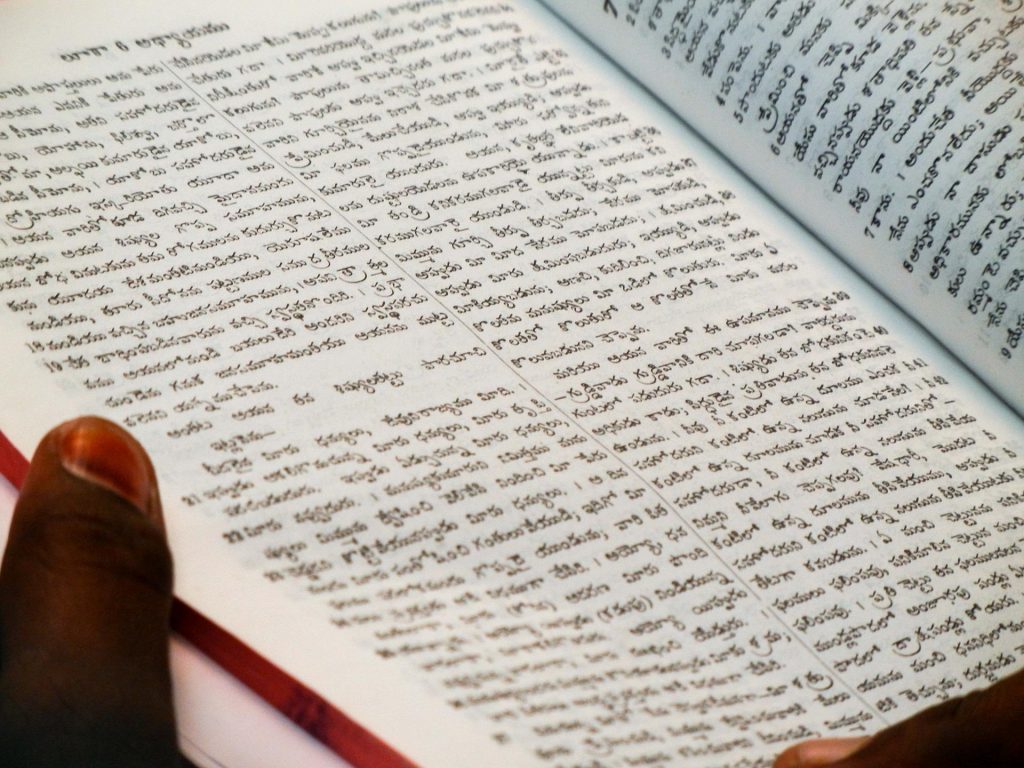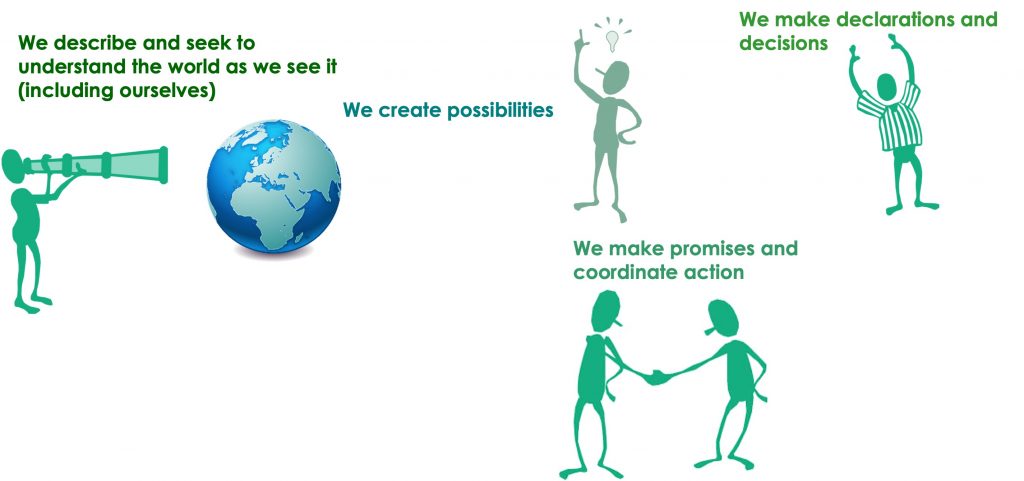
As far as we know, human language is unique. That is not to say that other animals do not communicate via sound, action or signs. They do. Rather, what makes human language unique lies in its complexity. Through human language, we can create a shared understanding about the world, explore possible futures, decide what future we want and then coordinate actions to create it. We can create complex social structures based on moral codes and the rule of law. We can seek to seek to define who we want to become as an individual and strive to be that person. No other animals use language with such variety, yet most of us are unaware of the role language plays in our daily life and pay little or no attention to how we use it.
Since the early Greek philosophers, the western view of language has been based on the idea that we speak to describe what is. This interpretation of language assumes it describes an already existing reality and that is all. In this interpretation, language plays a purely passive role in human life. This work draws on relatively recent innovations in the philosophy of language, challenges this traditional view and offers a more powerful way for human beings to understand and utilise language.
This newer interpretation of language arose during the latter half of the twentieth century. Originating from linguistic philosophers such as J. L. Austin and John R. Searle, it was claimed that language not only describes the world, it generates action in the world. For example, in the traditional interpretation of language, when I say, “Can you please get me a cup of coffee”, I am describing my desire for you to bring me a coffee. In this new interpretation, in uttering those words, I am not describing my desire that you bring me a coffee, rather I am taking the action of making a request. In other words, I am not describing a request, I am making one. This may sound like a trivial distinction, but the implications are profound.
By making the connection between language and action, a deeper understanding of human communication and how we create our social reality emerges. In the traditional interpretation of language, it is generally assumed that communication is a way of transferring information between two people; a send-receive approach that is a parallel to telecommunication. This new interpretation essentially sees communication as being the coordination of action between people, not just in the present moment but importantly in the future. Rather than just swap information, humans communicate to gain a shared understanding, orient ourselves to a situation, work out what we can do in the future and then coordinate activity to get it done. An understanding of the actions we use in language provides us with insights about how we can do this more effectively and also appreciate the impact this has on the way we see ourselves, relate to others and build our social structures.

This newer interpretation of language also provides us with innovative insights into the way human beings use language to generate our sense of reality and hence a new way of looking at what it is to be human. This also provides an opportunity to explore how we habitually use language to create the world in which they live, how this might limit us and to open up new possibilities and take actions we have not previously considered.
Language also plays a critical role in our conscious experience by helping us make sense of what we observe and, at times, acting as a catalyst to redirect our actions. That process of making sense is a constantly active process of interpretation taking what we believe to be true and assessing whether an event is something that is good for us or a threat to us.
As there is action in language, we can speak of ‘linguistic acts’.
In this approach, there are three fundamental linguistic acts – ‘assertions’, ‘assessments’ and ‘declarations’. Our assertions relate to what we believe to true about the world and provide a set of distinctions and a context for how we interpret what happens in the world. Our assessments relate to our judgements of what something means to us and our future with past assessments and assertions providing a context for our interpretations. Our declarations define our desired future, the paths we wish to take, the commitments we make and are used more formally to create social arrangements such as a marriage.
Language creates the world in which we live and, to varying degrees, traps us within that world – ‘language traps’. Language gives us a sense of certainty about how the world is and could be. A sense of too much certainty being one of those language traps. We use language to create stories to make sense the world and our place in it and these stories are the world for us.
The survival of these stories is so important to us that we will seek to defend them as we do all aspects of our ways of being.
Without language, there is no meaning just actions born of instinct and a physical being born of past experience. Without language, there is no sharing of knowledge, no dreams of the future and no complex cooperative action. Without language, we would not be human as we know humans to be.